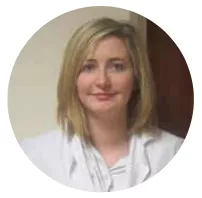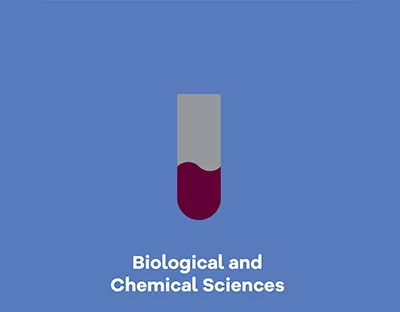Key Info
Bachelor of Science in Food Science and Health
This B.Sc. programme in Food Science and Health prepares graduates for careers in Ireland’s largest industry. About 40,000 people are employed in the food industry which generates an annual gross output of approximately €15.6 billion. The Government has targeted the food sector as being of great strategic importance, capable of generating considerably more wealth and employment. Since there is a direct link between diet and health, consumers are becoming more health conscious and are demanding higher quality foods that maintain health and prevent disease.
This Food Science and Health degree programme has been developed to meet these needs among consumers, the food industry, academic and research organisations, and government agencies.
You will find the study of Food Science and Health challenging and rewarding. This degree programme will combine the study of nutrition, human physiology and diet-health relationships with classical food science and technology.
This broad-based degree programme covers such topics as:
- food science and technology
- food quality
- food ingredients
- food chemistry
- food microbiology
- diet and health
- food processing
- food safety
- project management
- human nutrition
- public health nutrition
- advanced nutrient metabolism
- human physiology
- food biotechnology
Outside of the food sector, non-food uses of existing and new raw materials are also considered.
Learn more about our courses and upcoming events
What you will study
The programme is four years in duration. The course starts with basic science, developing key areas such as chemistry, biochemistry and microbiology, human nutrition and physiology, together with introductory food science and health.
In the third and fourth years there is a series of modules dealing with:
- Health and Food
- Food Chemistry
- Food Processing and Process Engineering
- Food Quality and Food Microbiology
- Food Ingredients
- Food Biotechnology
- Project Management
There are also elective modules in:
- Business Consulting
- Waste Management
- Exercise and Health
- Accounting
A project which is undertaken throughout the final year allows the in-depth analysis of a relevant topic that gives you the opportunity to carry out independent research.
During the Spring Semester of year three and the subsequent Summer, a period of Cooperative Education provides industrial work experience in a food enterprise.
| Semester 1 | Semester 2 | ||
| BY4001 | Biology 1 | BY4002 | Biology 2 |
| CH4701 | General Chemistry 1 | CH4102 | Organic Chemistry 1 |
| MA4601 | Science Maths 1 | BY4214 | Principles of Human Nutrition |
| CS4001 | Computer App for Scientists 1 | PH4142 | Physics for Environmental and Biosciences |
| FT4421 | Introductory Food Science and Health | CH4031 | General Chemistry 2 (Inorganic) |
| CH4041 | General Chemistry 2 (Physical) |
| Semester 3 | Semester 4 | ||
| BC4903 | Biomolecules | FT4204 | Food Chemistry |
| BY4013 | General Microbiology | ||
| CH4103 | Organic Chemistry 2 | BC4904 | Biochemistry 2 |
| CH4303 | Analytical Chemistry 1 | CH4304 | Analytical Chemistry 2 |
| LS4003 | Introductory Anatomy and Physiology | MA4704 | Technology Maths 4 |
| BY4012 | Microbes as Metabolic Factories |
| Semester 5 | Semester 6 | ||
| FT4005 | Food Technology | CO4320 | Cooperative Education |
| FT4305 | Food Engineering Principles | ||
| FT4375 | Food Processing Operations | ||
| FT4447 | Food Quality | ||
| FT4457 | Research Trends in Health & Food | ||
| FT4214 | Public Health Nutrition |
| Semester 7 | Semester 8 | ||
| FT4017 | Final Year Project 1 (Food Science and Health) | FT4408 | Project 2 |
| FT4437 | Milk Proteins as Food Ingredients | FT4468 | Food Biotechnology |
| MA4605 | Chemometrics | FT4458 | Food Production Systems |
| FT4355 | Advanced Nutrient Metabolism & Health | FT4428 | Advanced Food Chemistry |
| FT4438 | Food Microbiology | ||
| Elective - Choose 1 | Elective - Choose 1 | ||
| ER4507 | Effluent Control - Waste Management 1 | EP4408 | Small Business Consulting |
| SS4217 | Exercise and Health 1 | AC4214 | Accounting for Financial Decision Making |
| FT4007 | Functional Foods |
Entry requirements
| CAO points history |
430
|
|---|---|
| Minimum grades |
Applicants are required to hold at the time of enrolment the established Leaving Certificate (or an approved equivalent) with a minimum of six subjects which must include: Two H5 (Higher Level) grades and Four O6 (Ordinary Level) grades or four H7 (Higher Level) grades. Subjects must include Mathematics, Irish or another language, and English. |
| Subject requirements |
In addition, applicants must hold a grade O3/H7 grade in Mathematics and a grade H4 in any one of the following: Applied Mathematics, Physics, Chemistry, Physics with Chemistry, Biology, Agricultural Science. |
| Additional considerations |
A Special Mathematics Examination will be offered at UL following the Leaving Certificate results for those students who did not achieve the Mathematics requirement. We welcome applications from mature students. Mature applicants must apply through the Central Applications Office (CAO) by 1 February. |
| Non-EU Entry Requirements |
|
How to apply
| Where are you applying from? | How to Apply |
|---|---|
| Ireland | Irish students must apply to UL via the CAO. More information can be found here. |
| The UK | Students who have completed their A-Levels can apply to UL via the CAO. More information can be found on the Academic Registry website. |
| The EU | EU students can apply to UL via the CAO. More information can be found on the Academic Registry website. |
| Non-EU country | If you are outside of the EU, you can apply for this degree here. |
Fees and funding
Student course fees are broken into three components - Student contribution, Student Levy and Tuition Fees.
A number of illustrative examples of fees for this course based on the current fee levels have been set out in the tables below.
An explanation of the components, how to determine status and the criteria involved is provided below the examples as is a list of possible scholarships and funding available.
EU Students with Free fees status in receipt of a SUSI grant
| HEA pays | Tuition Fees | €4,262 |
| SUSI pays | Student contribution | €3,000 |
| Student pays | Student Levy | €102 |
| Total | €7,364 |
EU Students with Free fees status not in receipt of a grant
| HEA pays | Tuition Fees | €4,262 |
| Student pays | Student contribution | €3,000 |
| Student pays | Student Levy | €102 |
| Total | €7,364 |
Students with EU fee status not in receipt of a grant
| Student pays | Tuition Fees | €4,262 |
| Student pays | Student contribution | €3,000 |
| Student pays | Student Levy | €102 |
| Total | €7,364 |
Non-EU Students
| Student pays | Tuition Fees | €21,798 |
| Student pays | Student Levy | €102 |
| Total | €21,900 |
Student course fees are comprised of the following components:
Student Contribution
Annual charge set by the government for all full-time third level students. All students are liable unless they have been approved for a grant by Student Universal Support Ireland (SUSI). Please refer to https://www.studentfinance.ie to determine your eligibility for a grant and for instructions on how to apply. The current student contribution is set at €3000.
Student Levy
All students are liable to pay the Student Levy of €102. Please note the Student Levy is not covered by the SUSI Grant.
Tuition Fees
These are based on Residency, Citizenship, Course requirements.
Review the three groups of criteria to determine your fee status as follows
-
Residency
- You must have been living in an EU/EEA member state or Switzerland for at least 3 of the 5 years before starting your course
-
Citizenship
- You must be a citizen of an EU/EEA member state or Switzerland or have official refugee status
-
Course Requirements
(all must be met)
- You must be a first time full-time undergraduate (Exceptions are provided for students who hold a Level 6 or Level 7 qualification and are progressing to a Level 8 course in the same general area of study).
- You must be undertaking a full-time undergraduate course of at least 2 years' duration
- You cannot be undertaking a repeat year of study at the same level unless evidence of exceptional circumstances eg serious illness is provided (in which case this condition may be waived)
Depending on how you meet these criteria your status will be one of the following -
- Free Fee Status: You satisfy all three categories (1, 2 and 3) and therefore are eligible for the Higher Education Authority’s Free Fees scheme.
- EU Fee Status: You satisfy both the citizenship and residency criteria but fail to satisfy the course requirements and are liable to EU fees.
- Non EU Fee Status: You do not meet either the citizenship or residency criteria and are therefore liable to Non EU fees.
More information about fees can be found on the Finance website
These scholarships are available for this course
| Title | Award | Scholarships Available |
|---|---|---|
| Food Science and Health Academic Achievement Award | cash prize | 1 |
| Johnson and Johnson WiSTEM2D Programme | ||
| Kerry Ingredients Prize | cash prizes | 3 prizes |
These scholarships are available for all courses
| Title | Award | Scholarships Available |
|---|---|---|
| All Ireland Scholarships - sponsored by J.P. McManus | €6,750 | 125 |
| Brad Duffy Access Scholarship | €5,000 for one year | 1 |
| Bursary for my Future Scholarship | €2,750 one off payment | 4 |
| Civic Engagement Scholarship | €1500 | 1 |
| Cooperative Education Award | 1 medal per faculty | |
| Elaine Fagan Scholarship | €1,500 | |
| Financial Aid Fund | ||
| Hegarty Family Access Scholarships | €5,000 for one year | 2 |
| Higher Education Grants & VEC Grants | ||
| Irish American Partnership Access Scholarships | €5,000 | 2 |
| Paddy Dooley Rowing Scholarship | €2,500 | |
| Plassey Campus Centre Scholarship Programme | ||
| Provincial GAA Bursaries Scheme | €750 | |
| Stuart Mangan Scholarship | ||
| The Michael Hillery and Jacinta O’Brien Athletics Scholarship | Various benefits equating to over €7,000 in value | |
| UL Sports Scholarships | Varies depending on level of Scholarship | Multiple |
Your future career
Employability skills from this degree
- Analysing, problem-solving and interpreting data
- Conducting research
- Conducting laboratory work and reporting
- Attention to detail
- Oral and written communication skills
- IT skills
- Numerical and statistical awareness
- Time management
Further Study Options
- MA in Business Management
- MSc in Functional Foods & New Product Development
- MSc in Human Nutrition and Dietetics
- MSc in International Management and Global Business
- MSc in Public Health
- PhD in Food Science
Job titles for graduates with this degree
- Culinary Technologist
- Food Technologist
- Laboratory Analyst
- QA & Regulatory Technologist
- Quality Analyst
- Quality Technician
- Sensory Analyst
- Supervisor
- Technical Sales Coordinator
Student profiles

Rachel McCarthy
I decided to study the BSc in Food Science & Health because I had an interest in Food and Nutrition. I always wanted to work in that area and now know that the degree gave me excellent scientific knowledge to allow me to pursue my career.
In First Year: you learn the basics of all science subjects. As you proceed through the programme you cover areas in Food Science, for example, Food microbiology, food ingredients,food chemistry, food processing operations and food biotechnology. You also study Health, for example, research trends in diet and health, human nutrition, public health nutrition, advanced nutrient metabolism and exercise and health.
I undertook my Cooperative Placement in Abbot Nutrition, Co Cavan as a Quality Compliance Intern. The placement exposed me to responsibilities such as Updating Standard Operating Procedures, Preparation for internal and external audits (Compliance Walkdowns, CAPA's (Corrective and Preventative Actions), Following up on risk assessments as well as working with teams, communication and ICT skills.
My Final Year Project was an Evaluation of the Bioactivity of Selected Dietary Cereals. After graduation, I applied and was successful getting a place on the MSc. Human Nutrition & Dietetics programme in UL. My degree in Food Science & Health provided me with a great base knowledge base in the requirements of Biochemistry & Physiology.
In 2022, I graduated and am currently working a dietitian with the UL Hospital group.
Lorraine Stone
A day in the Life of an R&D Technologist
The role of R&D technologist is very varied and involves project management, recipe formulation and product development right from the concept stage up to industrialisation and product launch. The role also involves dealing with stakeholders and global markets in the development of new products within safety, regulatory and market specific requirements. Innovation and idea generation are key activities as well as keeping on top of industry trends including new launches. It is a challenging job, which requires both creativity and logic. My degree at UL prepared me for my career by providing me with a strong scientific base, skills in independent project work and a fantastic opportunity to build real world experience through the Co-Operative Education work placement scheme.
Lorraine’s tip:
Make sure you enjoy and are passionate about the subject area you choose to study. Try to get relevant work experience wherever you can as it will strengthen the knowledge and understanding you are building up in your coursework. Enjoy the great facilities, clubs and societies that UL has to offer - they are second to none and you will make life-long friends.
Lorraine is currently employed as a Research & Development Technologist with Wyeth Nutrition (Nestlé Research).


Alannah Murphy
I’ve always had a passion for food, where it comes from and how it’s produced as well as nutrition and all kinds of cooking. The Food Science and Health course here at UL intrigued me with the range of modules that it covered from introductory chemistry and biology to food engineering and biotechnology, nutrition and public health. The opportunity to gain experience working with a company in the food industry and learn what happens in the real world sealed the decision for me and I put the course at the top of my CAO choices.
This degree offers a broad range of subjects with the first half of the 4-year programme focusing on the core science subjects. This has given me a great scientific background when studying topics like chemistry of foods, food processing, health, nutrition and biotechnology.
I organized my own Co-Op placement and worked with Goatsbridge Trout Farm in Co. Kilkenny. During my time there I was part of the New Product Development team and assisted in the development and launch of their Heavenly Hot Smoked Trout Pate. As it is a small business, I was involved in so many different aspects of the business and learned the real meaning of multitasking. This Co-Op opportunity gave me so much drive to one day work in such a motivated and hard-working company and possibly even set up my own one day. With the insight I gained through my Co- Op placement, I feel I am better prepared for the ‘real world’ as a food science graduate and have so much more to offer future employers.
Evan Conroy
I am from Portlaoise, Co. Laois and I studied BSc Food Science & Health. I chose UL because of the scenic campus, and the vibrant student life. I was interested in the course because it combined a background in general science with my personal interests in food, nutrition, and health. Despite not studying chemistry for my Leaving Certificate, I ended up enjoying the chemistry modules the most. I also loved the research aspects of the course, such as the final year project/thesis. This provided me with the opportunity to complete a 10-week summer research project as part of the Food Proteins and Peptides Research Group at UL. I was awarded the Bronze President’s Volunteer Award (PVA) and the COVID-19 Volunteer Award. I also volunteered as part of the International Buddy Programme which involved welcoming new international students, answering their questions, and advising them on student life. I completed my Co-Op placement at Kerry Group’s European Research & Development (R&D) Headquarters (HQ) in their Global Technology & Innovation Centre (GTIC) located in Millenium Park, Naas, Co. Kildare. During my placement I worked as a sweet and cereal research, development, and application (RD&A) intern where I led new product development (NPD) projects related to sustainability and flavour innovation. My advice to school leavers is to not limit yourself. Physics was the only science subject I had studied for my Leaving Certificate, and I came onto the course with the lowest points admissible. I went on to graduate with a first-class honours degree. I joined Dairygold’s graduate development programme as a production graduate in 2022, and I have been working there as a production shift manager since 2023.


